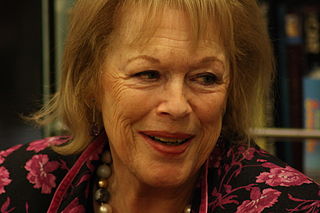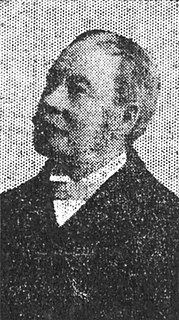A Quote by Jane Welsh Carlyle
The triumphal-procession-air which, in our manners and customs, is given to marriage at the outset - that singing of Te Deum before the battle has begun.
Related Quotes
Columbus was an Abraham, for he went out not knowing whither he went. Columbus was a Moses, for he endured as seeing Him who is invisible. Only the man of faith is the man of power. Only he who can see the invisible can do the impossible. God grant that to-day in that bark we may be wafted by God's blessing, and may land at last on the shores of Heaven, where we shall sing a sweeter Te Deum than that which awoke the echoes on the soil of virgin America, or those amid the splendors of the court at Barcelona.
Thus, then, on the night of the tenth of May, at the outset of this mighty battle, I acquired the chief power in the State, which henceforth I wielded in ever-growing measure for five years and three months of world war, at the end of which time, all our enemies having surrendered unconditionally or being about to do so, I was immediately dismissed by the British electorate from all further conduct of their affairs.
Let us therefore continue our triumphal march to the realization of the American dream... for all of us today, the battle is in our hands... The road ahead is not altogether a smooth one. There are no broad highways that lead us easily and inevitably to quick solutions... We are still in for the season of suffering... How long? Not long. Because no lie can live forever... our God is marching on.
My final words of advice to you are educate, agitate and organize; have faith in yourself. With justice on our side I do not see how we can loose our battle. The battle to me is a matter of joy. The battle is in the fullest sense spiritual. There is nothing material or social in it. For ours is a battle not for wealth or for power. It is battle for freedom. It is the battle of reclamation of human personality.
This is another thing which I really like investigating in my novels: what is it that makes an intimate society, that makes a society in which moral concern for others will be possible? Part of that I think are manners and ritual. We tried to get rid of manners, we tried to abolish manners in the '60s. Manners were very, very old-fashioned and un-cool. And of course we didn't realise that manners are the building blocks of proper moral relationships between people.
No civilization would ever have been possible without a framework of stability, to provide the wherein for the flux of change. Foremost among the stabilizing factors, more enduring than customs, manners and traditions, are the legal systems that regulate our life in the world and our daily affairs with each other.






































